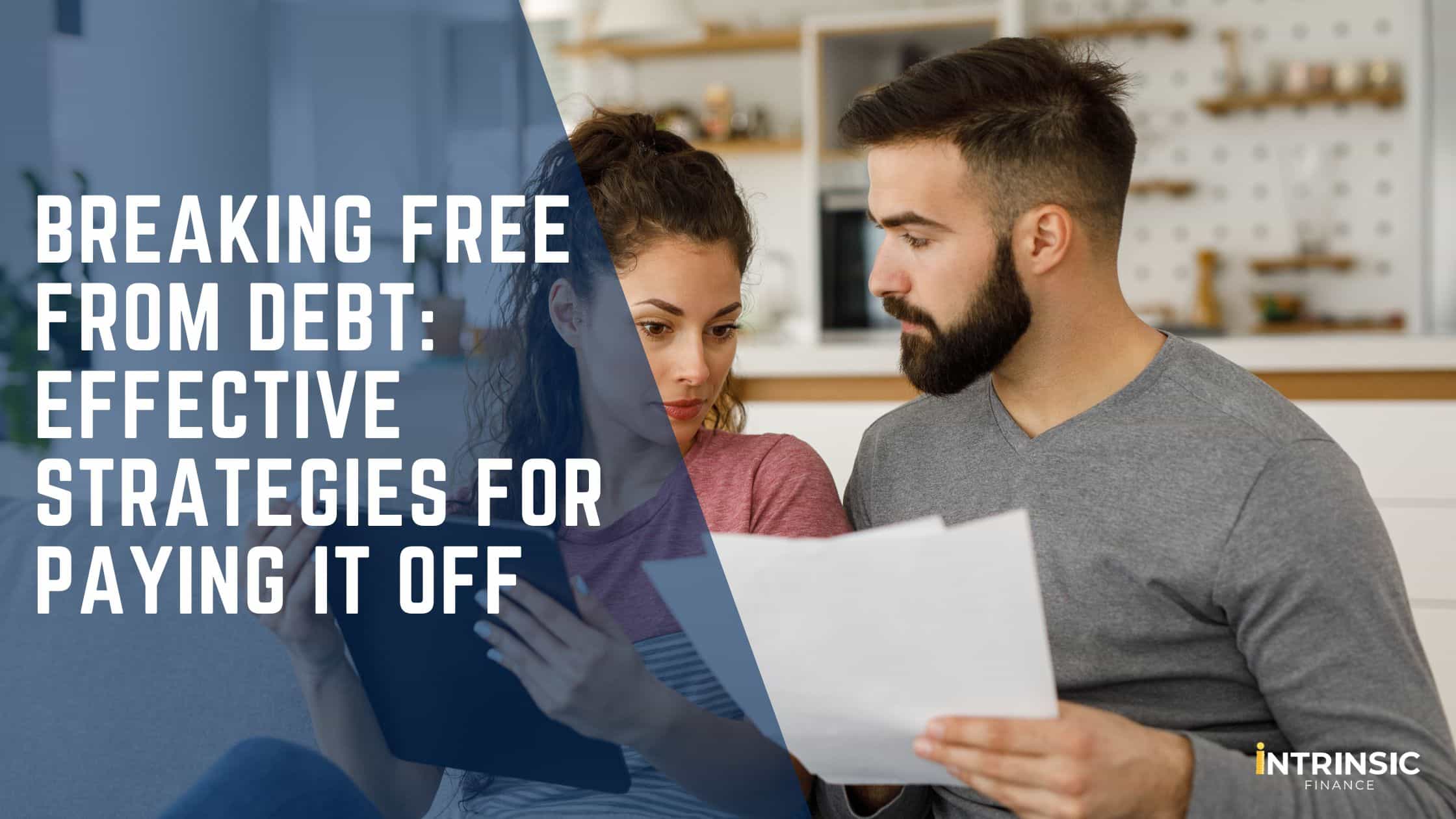Debt can be a significant burden, impacting your financial health and overall well-being. However, with a strategic approach and consistent effort, you can break free from debt and achieve financial freedom.
The Impact of Debt on Your Life
Debt can significantly impact your financial well-being and overall quality of life. It can lead to:
- Constant Stress and Anxiety: Worrying about debt can negatively affect your mental health.
- Limited Financial Flexibility: Debt can restrict your ability to save, invest, or pursue your goals.
- Missed Opportunities: Debt can prevent you from taking advantage of opportunities, such as buying a home or starting a business.
- Higher Living Costs: Interest payments on debt can increase your monthly expenses.
Understanding Your Debt
To effectively tackle your debt, you need to understand your financial situation. Create a detailed debt inventory that includes:
- Creditor: The name of the creditor or lender.
- Balance: The current outstanding balance of the debt.
- Interest Rate: The annual percentage rate (APR) charged on the debt.
- Minimum Monthly Payment: The minimum amount you need to pay each month.
Prioritising Debts:
- High-Interest Debt: Prioritise paying off high-interest debt, such as credit card debt, as quickly as possible.
- Snowball Method: Pay off the smallest debt first, then use the extra money to pay off the next smallest debt, and so on.
- Avalanche Method: Focus on paying off the debt with the highest interest rate first.
Part 1: Creating a Debt Repayment Plan
The Debt Avalanche Method
The debt avalanche method prioritises paying off high-interest debts first. Here’s how it works:
- List Your Debts: Create a list of all your debts, including the creditor, balance, interest rate, and minimum monthly payment.
- Prioritise High-Interest Debts: Focus on paying off the debt with the highest interest rate first, while making minimum payments on the other debts.
- Allocate Extra Payments: Allocate any extra money you have towards the highest-interest debt.
- Repeat the Process: Once the highest-interest debt is paid off, move on to the next highest-interest debt, continuing the process until all debts are eliminated.
The Debt Snowball Method
The debt snowball method prioritises paying off the smallest debt first, regardless of the interest rate. Here’s how it works:
- List Your Debts: Create a list of all your debts, including the creditor, balance, interest rate, and minimum monthly payment.
- Prioritise Smallest Debts: Focus on paying off the smallest debt first, while making minimum payments on the other debts.
- Gain Momentum: Once the smallest debt is paid off, use the extra money to pay off the next smallest debt.
- Repeat the Process: Continue this process until all debts are eliminated.
Hybrid Approach
A hybrid approach combines elements of both the debt avalanche and debt snowball methods. You can prioritise high-interest debts while also paying off smaller debts to gain momentum and stay motivated.
Setting Realistic Goals
- Break Down Debt: Divide your total debt into smaller, more manageable chunks.
- Set Specific Goals: Set specific, measurable, achievable, relevant, and time-bound (SMART) goals, such as paying off a certain amount of debt each month.
- Track Your Progress: Use a debt tracker or budgeting app to monitor your progress and stay motivated.
- Reward Yourself: Celebrate your achievements, but avoid rewarding yourself with unnecessary purchases.
Part 2: Budgeting and Saving
Creating a Budget
A budget is a financial plan that helps you track your income and expenses. By creating a budget, you can identify areas where you can cut back and save more money.
Steps to Create a Budget:
- Track Your Income and Expenses: Record all your income sources, such as your salary, investments, or rental income. Also, track all your expenses, including housing, transportation, food, entertainment, and debt payments.
- Categorise Your Expenses: Organise your expenses into categories to identify areas where you may be overspending.
- Set Financial Goals: Define your short-term and long-term financial goals, such as saving for a vacation, buying a house, or retiring early.
- Allocate Funds: Allocate a specific amount of money to each category of your budget.
- Review and Adjust: Regularly review your budget and make adjustments as needed.
Cutting Expenses
To save more money, consider the following tips:
- Reduce Unnecessary Expenses: Cut back on non-essential expenses, such as dining out, entertainment, and subscriptions.
- Cook at Home: Prepare meals at home instead of eating out to save money.
- Shop Smart: Look for deals, discounts, and coupons.
- Reduce Utility Costs: Conserve energy by turning off lights and appliances when not in use.
- Transportation Costs: Consider carpooling, biking, or using public transportation.
Increasing Income
To boost your income and accelerate your debt repayment, consider the following strategies:
- Side Hustles: Start a side hustle, such as freelancing, tutoring, or selling products online.
- Part-Time Jobs: Take on a part-time job to supplement your income.
- Sell Unused Items: Sell unwanted items on online marketplaces or at garage sales.
- Rent Out a Room: If you have extra space, consider renting out a room to generate rental income.
By implementing these strategies, you can take control of your finances and achieve your financial goals.
Part 3: Negotiating with Creditors
Negotiating with creditors can be a powerful tool to reduce your debt burden and improve your financial situation. Here are some tips:
Understanding Your Rights:
- Fair Debt Collection Practices Act: Familiarise yourself with the Fair Debt Collection Practices Act, which outlines the rights of consumers and limits the tactics debt collectors can use.
- Know Your Rights: Understand your rights under consumer protection laws.
Building Rapport with Creditors:
- Be Polite and Professional: Maintain a respectful and professional tone when communicating with creditors.
- Be Honest About Your Situation: Explain your financial situation honestly and openly.
- Offer a Solution: Propose a repayment plan that you can realistically afford.
Negotiating Lower Interest Rates and Payment Plans:
- Negotiate a Lower Interest Rate: A lower interest rate can significantly reduce your monthly payments and overall debt.
- Request a Longer Repayment Term: A longer repayment term can lower your monthly payments, but it may increase the total amount you pay.
- Consider a Debt Consolidation Loan: A debt consolidation loan can help you combine multiple debts into a single, lower-interest loan.
Part 4: Avoiding Future Debt
Mindful Spending Habits:
- Impulse Buying: Avoid impulsive purchases by taking time to think before buying.
- Emotional Spending: Recognise and address emotional triggers that lead to overspending.
- Budgeting: Create and stick to a budget to track your income and expenses.
Building an Emergency Fund:
- Set a Goal: Aim to save three to six months’ worth of living expenses.
- Automate Savings: Set up automatic transfers from your checking account to your savings account.
- High-Yield Savings Account: Consider opening a high-yield savings account to earn higher interest rates.
Tips for Saving Money:
- Cook at Home: Prepare meals at home instead of eating out.
- Shop Smart: Use coupons, compare prices, and buy generic brands.
- Reduce Utility Costs: Conserve energy and water to lower utility bills.
- Cut Back on Subscriptions: Cancel unnecessary subscriptions and memberships.
- DIY Projects: Learn DIY skills to save money on home repairs and maintenance.
By following these tips, you can break free from debt, build a solid financial foundation, and achieve your financial goals.
Part 5: Seeking Professional Help
If you’re struggling to manage your debt on your own, consider seeking professional help from a credit counsellor or debt settlement company.
Credit Counseling Services
Benefits of Professional Guidance:
- Personalised Advice: Credit counsellors can provide tailored advice based on your specific financial situation.
- Debt Management Plans: They can help you create a debt management plan to pay off your debts systematically.
- Negotiation Skills: Credit counsellors can negotiate with creditors to reduce interest rates and monthly payments.
- Financial Education: They can provide valuable financial education to help you avoid future debt.
How to Find a Reputable Credit Counselor:
- National Foundation for Credit Counseling (NFCC): The NFCC is a nonprofit organisation that offers certified credit counselling services.
- Local Non-Profit Organisations: Many communities have local non-profit organisations that offer free or low-cost credit counselling.
- Check with Your Employer or Union: Some employers offer employee assistance programs that include credit counselling services.
Debt Consolidation and Debt Settlement
Understanding the Pros and Cons:
- Debt Consolidation: This involves combining multiple debts into a single loan with a lower interest rate.
- Debt Settlement: Negotiating with creditors to settle debts for less than the full amount owed.
Working with a Debt Settlement Company:
- Research Reputable Companies: Choose a reputable debt settlement company with a good track record.
- Understand the Process: Be aware of the potential consequences of debt settlement, such as damage to your credit score.
- Negotiate Terms: Work with the debt settlement company to negotiate lower settlement amounts with your creditors.
Conclusion
The Path to Financial Freedom
Breaking free from debt is a challenging but rewarding journey. It requires perseverance, patience, and a strong commitment to your financial goals. By following the strategies outlined in this guide, you can take control of your finances and achieve financial freedom.
Perseverance and Patience
Remember that it takes time to pay off debt. Don’t get discouraged by setbacks or unexpected expenses. Stay focused on your goals and celebrate your achievements, no matter how small.
Celebrating Milestones
As you make progress on your debt repayment journey, celebrate your milestones. Whether it’s paying off a credit card or reducing your overall debt, acknowledging your achievements can boost your motivation.
A Brighter Financial Future
By breaking free from debt, you’ll open up new opportunities and improve your overall quality of life. You’ll have more financial flexibility, reduced stress, and the ability to save for future goals.
Remember, financial freedom is within your reach. Start taking action today and embark on your journey to a brighter financial future.
Drive Your Dream Car with Intrinsic Finance
Ready to hit the road in style? Intrinsic Finance is here to help you make your dream car a reality. With affordable car financing options tailored to your needs, we’ll guide you through the car-buying process.
Why Choose Intrinsic Finance?
- Competitive Interest Rates: Affordable monthly repayments.
- Quick and Easy Approval Process: Get approved in minutes.
- Flexible Loan Terms: Choose a repayment plan that suits your budget.
- No Hidden Fees: Transparent pricing and no surprises.
- Exceptional Customer Service: Our dedicated team is here to assist you every step of the way.
Apply Now and start driving your dream car today!

